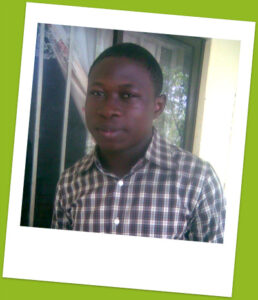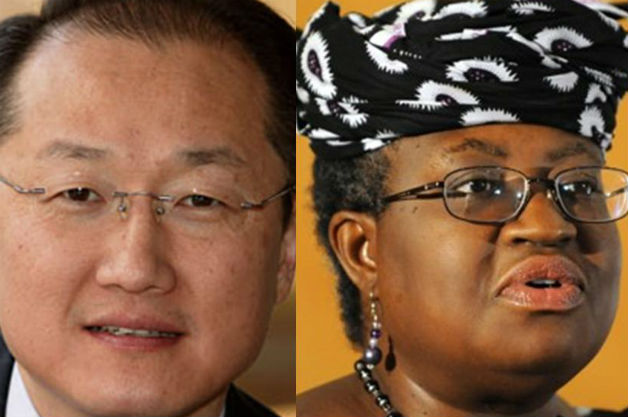"Jim Yong Kim's candidacy for the World Bank fell short"
April 18 The capabilities of newly chosen World Bank president and health tsar Jim Yong Kim are not in doubt, however his African rival was arguably the best candidate for the job, according to Nnadozie Onyekuru, 23, a Commonwealth Correspondent from Nigeria.
The capabilities of newly chosen World Bank president and health tsar Jim Yong Kim are not in doubt, however his African rival was arguably the best candidate for the job, according to Nnadozie Onyekuru, 23, a Commonwealth Correspondent from Nigeria.
“When economists from the World Bank visit poor countries to dispense cash and advice, they routinely tell governments to reject cronyism and fill each important job with the best candidate available.
“It is good advice. The World Bank should take it. In appointing its next president, the bank’s board should reject the nominee of its most influential shareholder, America, and pick Nigeria’s Ngozi Okonjo-Iweala.” – The Economist, March 31st 2012.
In a recent encounter with Nigeria’s finance minister, a popular columnist accused her of attempting to derail the re-election chances of Barack Obama. He was jokingly referring to the race for the next World Bank president in which the minister and Colombia’s José Antonio Ocampo were put forward as an answer to the West’s stranglehold on the leadership of global financial institutions since the collapse of World War II.
Across Nigeria, there had been excitement over Mrs. Iweala’s candidacy. One optimistic politician suggested that former Commonwealth Secretary General, Mr. Emeka Anyaoku, could crack the European bloc for his countrywoman. Her candidacy was the most outstanding compromise event in recent times: Kwame Nkrumah is probably smiling in his grave at the way Angola, Nigeria and South Africa (which had a recent diplomatic spat with Nigeria) mobilised the African Union on the issue.
The contest was a déjà vu of last year’s IMF managing directorship race, but many analysts believe that the previous challenge was unsuccessful largely because Europe’s candidate, Christine Lagarde who perhaps speaks better English than her native French, was a round peg in a round hole.
That was not the case with America’s successful submission for the World Bank presidency, Jim Yong Kim, a public health tsar and Dartmouth College president. The votes of America, Europe and Japan were enough to seal the deal for Kim. But despite the fact that this voting bloc makes the majority financial contribution to the bank, emerging markets are questioning if that is enough to justify their continual colonising of the top position. The BRICS nations have even threatened to open their own bank if the front doors remain closed.
Kim’s stellar capabilities are not in doubt. He has saved lives in the classrooms, in the fields and as Mr. Obama put it “from capitals to small villages”. In America, he is a Washington outsider, a man who migrated to the States five years after he was born in South Korea. His achievement personifies the can-do story Americans always sell to themselves.
But in the light of his contenders’ pedigrees, Kim’s candidacy for the presidency of the World Bank fell short of the “all men are created equal” story Americans always sell to the world. The consensus among many who understood the demands of the job at stake was that Iweala and Ocampo mattered if the job matters, and Kim mattered if the politics of getting the job matters.
International studies often cite brain drain as one of the setbacks plaguing the developing world. In 2007, Granta magazine listed Uzodinma Iweala as one of the best young American novelists. There are no such negotiations on the green passport of his mother who despite an envious career on the corridors of the Ivy League and Bretton Woods, has answered the call to serve her nation’s government creditably on two occasions.
In the shadow of bottlenecks, threats and uncharitable remarks, she has remained as bold as she was during a harrowing experience in Nigeria’s civil war which she spoke about in one of the TED talks. She has even called for a debate among the nominees for the post. Raised in the depth of Africa, she is an exemplary Nigerian woman and the mother of an American but that’s not the point.
The rallying cry was that she should have gotten the job because she was the best candidate for the job.
…………………………………………………………………………………………………………………
About me:
“I am a Nigerian student. I love books. I am young and restless with firm dreams that are only tempered by Christianity. I dream of a world where people, inspired by their common humanity, engage in a global wheel of ideas and do not use history as a tool for blame game but as a lesson for the future. In my spare time, I write stories, speeches and participate in activities that advance the respect of human dignity.”
…………………………………………………………………………………………………………………
Opinions expressed in this article are those of the author and do not necessarily represent the views of the Commonwealth Youth Programme. Articles are published in a spirit of dialogue, respect and understanding. If you disagree, why not submit a response?
To learn more about becoming a Commonwealth Correspondent please visit: http://www.yourcommonwealth.org/submit-articles/commonwealthcorrespondents/
…………………………………………………………………………………………………………………




